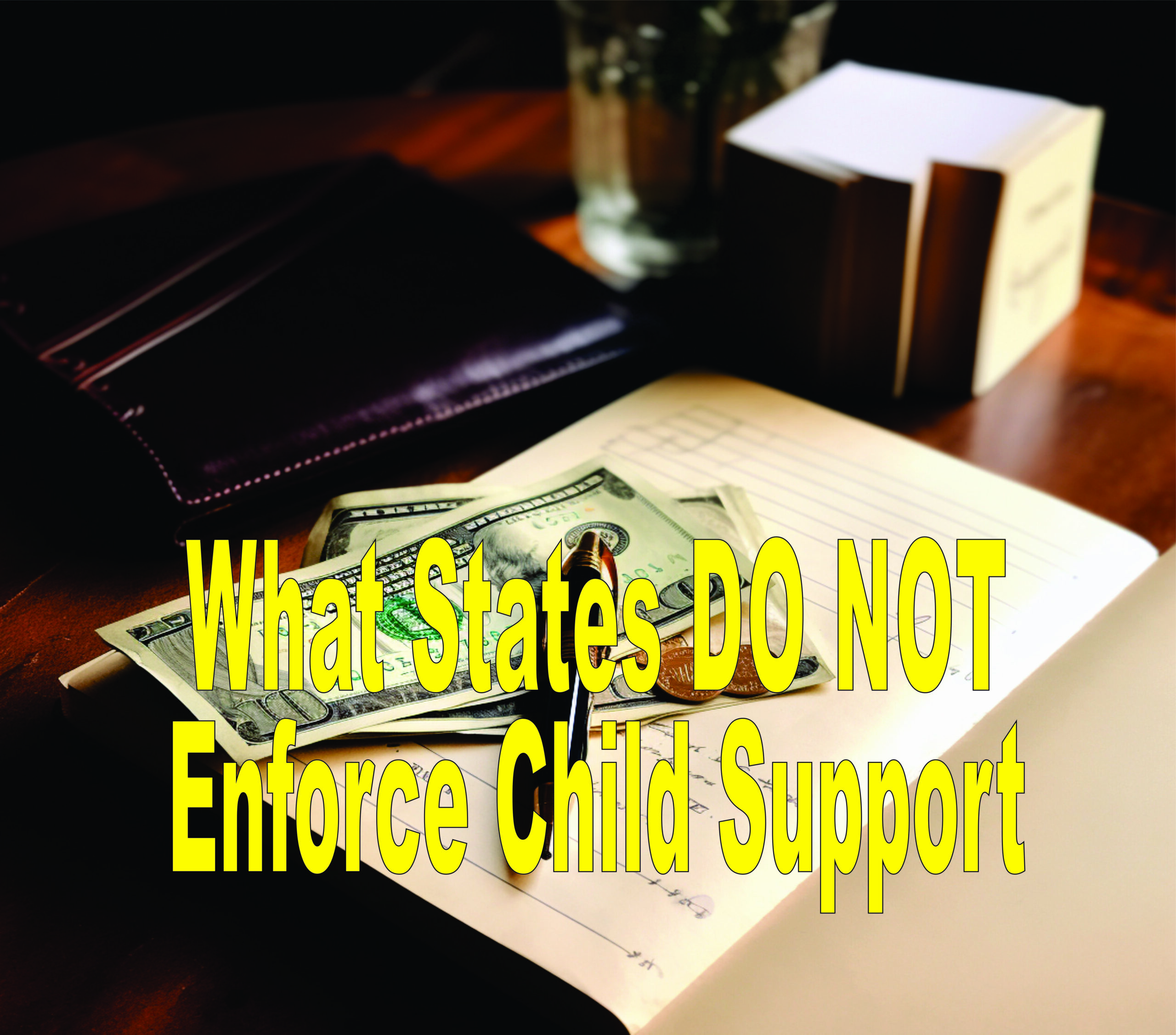What States DO NOT Enforce Child Support

Last Updated on October 31, 2023 by Lori Pace
The federal government passed laws that required every state to establish their own child support guidelines. So, this action helped courts determine the appropriate child support payments. But, what states enforce child support and which states do not?
It also led to substantial differences in child support awards among states. However, these discrepancies can make it difficult for parents to forecast how much they can expect to receive when they seek a child support order from the family court. This is especially true if parents live in different states.
Visit the Custodyxchange page for a full breakdown of calculations by region. Variations in guidelines for support payments could be due to different approaches. Each State is able to determine their own guidelines. A few states have teamed up with experts and researchers to determine the cost of raising children there.
Others took the easy way out and used existing research, which may have been data from another state or the national level. This is likely to contribute to the disparity between payment awards in the country. However, every State must convene an evaluation panel to review and assess its guidelines at least once every four years according to the law.
Child Support Debate Continues To Evolve
As a result of many changes in American families, most states have successfully restructured child support formulas. In the past, guidelines assumed that mothers worked less than their fathers. They were also based on the assumption that both parents had been married at one time. A lot of the discussion about child support payments today centers on finding a child support amount. These amount is affordable for the child and not leaving the parent in poverty.
Different State’s Child Support Enforcement
These methods allow the family court to enforce child support orders across state lines.
- Initiating wage garnishment. The court issues an order to the employer of the non-custodial parent. This order request that child support payments be taken directly from their regular paychecks. This is a simple and effective method, as the federal law states that employers must honor garnishment orders from other states. Employers cannot refuse to participate in wage garnishment.
- Filing a claim according to the Uniform Interstate Family Support Act (UIFSA), an agency specifically designed to enforce child support orders across states: This act allows you to contact the appropriate people or entities in each parent’s state to enforce your order. These include the child support agencies and courts as well as the attorney. The responding court is legally bound to treat the order of the initiating state in the same way it would treat an existing order in that state.
- Pressing charges against the other parent for unpaid child support. The parent who refuses to pay child support could be held in contempt of the court. This is because they have committed a crime by refusing to pay the child support ordered by the court. They will not be held in contempt if they fail to make the payments because of financial difficulties. However, they must prove their inability by proving income and assets. The court will hold a hearing to hear the reasons for the refusal to pay and to decide how to proceed with their collection efforts.
What If The Parent In Need To Pay For Child Support Changed States?
Many parents leave the state they live in to seek out states that have no child support laws. However, they soon discover they can’t escape their responsibilities and move elsewhere. You will see that both the federal and state governments can enforce child support orders, regardless of where the parent’s location is.
The Best States for Shared Parenting
Kentucky | What States DO NOT Enforce Child Support
Kentucky was the first state that established an explicit rebuttable presumption for joint legal custody and equal custody for temporary or final court orders. This means that unless there is enough evidence to support a different arrangement, equally shared decision-making is assumed.
Arizona
Arizona was given props for its “maximizing time provision,” which refers to the preference of the state for “maximizing each parent’s time with their children,” according to the report.
District of Columbia
D.C. did so partly because of a statutorily mandated “rebuttable assumption that joint custody is best for the child(ren)” except in cases where there is abuse or neglect.
Iowa and Nevada | What States DO NOT Enforce Child Support
Iowa has a strong presumption that joint legal custody is possible. Nevada also has a policy that encourages “parents to share in the rights and responsibilities for child rearing.”








